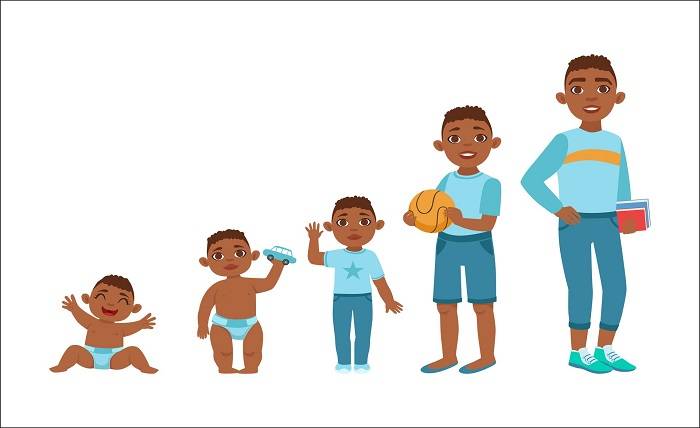Parenting is often described as one of the most rewarding journeys, but it’s also one of the most demanding. Children don’t grow in a straight line—they pass through distinct phases, each with its own joys, hurdles, and milestones. What your child needs at age two will look very different from what they need at age twelve or sixteen. As a parent, learning how to adapt your support through these shifting stages is one of the best ways to help your child flourish.
The First Years (0–2): Nurture and Attachment
In the earliest phase of life, your baby’s sense of safety is built almost entirely through your presence. Feeding, rocking, and responding to cries are not just daily routines—they’re the building blocks of trust. Babies at this stage are discovering the world through their senses, and small gestures such as singing, smiling, or gently talking to them strengthen their cognitive and emotional growth.
Encouraging exploration in a safe environment allows infants to hit key milestones like crawling, walking, and speaking. Though these years can be exhausting for parents, they set the foundation for secure attachment that will carry forward into later stages.
Early Childhood (2–6): Curiosity and Play
As toddlers grow into preschoolers, curiosity becomes their driving force. This is the phase where children start asserting independence, testing boundaries, and asking endless questions. Play becomes a central learning tool, teaching creativity, problem-solving, and social skills.
Parents can support this stage by offering opportunities for imaginative play, reading together, and encouraging physical activity. Allowing children to make simple decisions—like choosing their outfit or selecting a bedtime story—helps them build confidence in their abilities. Clear boundaries are equally important, teaching children how to balance freedom with responsibility.
School Age (6–12): Skills, Structure, and Self-Esteem
Once children begin formal schooling, their world expands quickly. They’re introduced to rules outside the home, new routines, and peer relationships that can strongly influence their self-image. Academic performance becomes a focus, but it’s equally important to recognize the role of hobbies, friendships, and personal achievements in shaping confidence.
Parents can play an active role by showing interest in their child’s daily experiences, encouraging effort rather than perfection, and promoting resilience in the face of setbacks. Peer approval often gains significance during this stage, so helping children learn empathy, conflict resolution, and healthy self-expression prepares them for stronger social bonds.
Adolescence (12–18): Independence and Identity
The teenage years are a whirlwind of change. Hormonal shifts, emotional ups and downs, and the desire for independence can make this stage both exciting and challenging. Teens often experiment with new ideas and friendships while searching for a sense of identity.
Parental support during this phase requires patience, open communication, and respect for growing autonomy. Listening without immediate judgment helps teens feel heard, even when they push boundaries. Guidance is still necessary, but offering it in the form of collaboration rather than control often strengthens trust.
Confidence and body image become increasingly important, especially for girls navigating puberty. This is where small choices, like wearing a first bra that feels both comfortable and age-appropriate, can make a big difference—brands such as Bleuet are designed with this need in mind, giving teens supportive options that help them feel more at ease in their changing bodies. Encouraging positive outlets—whether through sports, art, volunteering, or other passions—also helps teenagers build resilience and discover who they are.
Early Adulthood (18+): Letting Go, but Staying Close
As children become young adults, they start to step into independence, whether through higher education, jobs, or personal ventures. This phase is often bittersweet for parents who must balance offering guidance with giving space.
The most meaningful support at this stage comes from being available, offering advice when asked, and respecting boundaries. A strong foundation of trust developed in earlier years allows young adults to return for reassurance without feeling dependent. Even simple gestures—like regular phone calls or occasional visits—can help maintain a close bond as they navigate the responsibilities of adulthood.
Flexibility in Parenting
What stands out most across all these phases is the need for adaptability. Children change, and so must parenting approaches. A toddler who needs constant supervision will eventually grow into a teenager craving independence. A one-size-fits-all method simply doesn’t work.
The common thread, however, is love and consistency. Whether through nurturing in infancy, encouragement in school years, or respect in adolescence, the steady presence of a caring parent builds the foundation for healthy development.
When Extra Help Is Needed
Not all children progress at the same pace, and some may face challenges such as speech delays, learning difficulties, or social struggles. Parents shouldn’t hesitate to seek professional guidance when needed. In fact, reaching out to teachers, doctors, or counselors is a proactive way to ensure your child gets the right support. Community groups, extended family, and parenting resources can also provide valuable assistance.
The Power of Encouragement
Children flourish when they feel supported, not just in their successes but also in their struggles. Encouraging words like, “I’m proud of your effort,” or, “It’s okay to feel nervous,” can help them develop resilience and emotional intelligence. By modeling patience and empathy, parents show their children how to respond to challenges with kindness and determination.
Every developmental phase brings new opportunities for growth—both for the child and the parent. From nurturing an infant to guiding a teenager, the journey requires flexibility, understanding, and a willingness to evolve alongside your child. By offering the right kind of support at the right time, you not only help them through challenges but also empower them to thrive.
Parenting may not come with a manual, but adapting with love and patience through each stage equips your child with the confidence and strength to build a fulfilling future.

